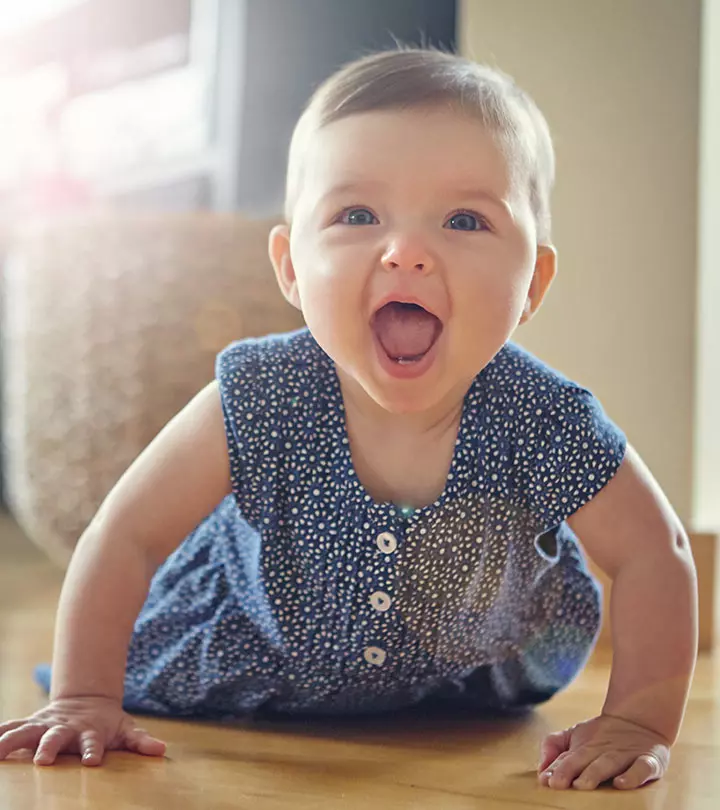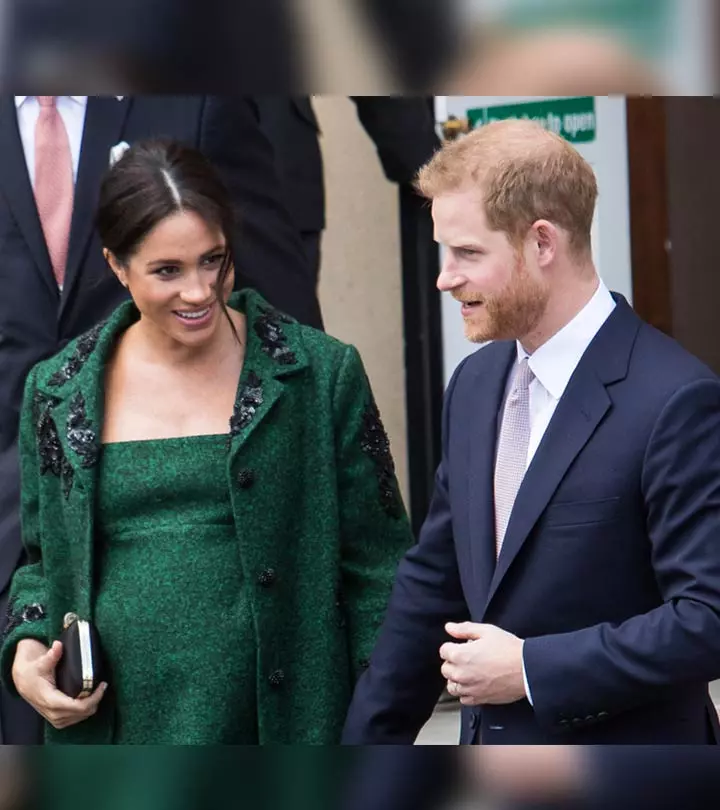
Image: iStock
As you hold your newborn in your arms, you start feeling like all the pain and challenges you had to go through were just worth it. You know that you love your little bundle of joy to the moon and back. As you spend more and more time with your little one you start wishing that they could also express what they felt for you.
However, it’s going to be a while before your little bundle of joy learns to talk and verbally express their love to you. For them to say “mama”, “dada” or an “I love you” you’ll have to be patient for a while. But the good news is babies do communicate in ways other than just verbal. Yes, babies can show their love and affection in ways that you never thought was possible. After spending nights without sleep, feeding them round the clock, and tiring diaper duties, you might wonder if your baby even loves you half as much as you do. The truth is, they do! Here are a few signs that prove that your baby loves you with all their heart and cherishes the bond that you have. Read on to find out more on this:
1. They Recognize You Easily

Image: Shutterstock
If you are the primary caregiver or parent, your baby will easily recognize you. Even if the room is filled with other family members or friends, yours will be the only face they recognize. This is because they love you and identify you as a source of safety, comfort, and love. Your child will be able to recognize the sound of your voice, your body movements, and even your smell. Anything associated with you will bring them great joy and a sense of belonging! (1)
2. They Stare At You

Image: Shutterstock
One of the most precious moments of parenthood, in the initial days, is when your little one graces you with a soulful stare. They’ll look at you and lose themselves in your eyes! Babies love staring at the faces of those they love. And there’s more — it is a kind of survival instinct. Babies stare at their caregivers to induce a sense of attention and love from them! So, this doesn’t just mean your baby loves you; it also means that they want you to love them! Isn’t that so beautiful? (2).
3. They Cry Terribly When You’re Not Around
Babies take the phrase “attached to the hip” very seriously. Your child will want you around them at all times and are the happiest when you are constantly in their presence. However, should you ever leave them alone in the room or with someone else, the waterworks begin. All that endless crying when you are not around can make you upset, but you should know that this shows how much they love you!
You are pretty much like their lifeline, and without you around, they get distressed. When a child is separated from their parents, they may experience what is known as separation anxiety. This essentially happens because they have developed an attachment to you, and this bond makes them feel safe. So, when you are separated from them, they might develop anxiety (3).
4. They Give You A Million Dollar Smile All The Time
Babies get distracted easily, but nothing gets their attention as you do — and what a smile they have on their face when they see you! You often would have observed your baby profoundly concentrating on their new toy or just aimlessly staring at something. The chances are that they are lost in thoughts; however, each time they see you, they will break into a smile. That smile is their way of telling you, “I love you so much!”.
5. They Start To Giggle
If anyone gets your sense of humor, it is your baby! One of the most important signs that shows that your baby loves you is if they start to giggle. You could be making funny faces or baby-talking with them, and they’ll just burst into laughter. And it is the sweetest sound you’ll ever hear! If you’re one of those few people who can make your baby giggle, then consider yourself lucky because you’ve won their hearts!
6. They Try To Smell You, And They Love It

Image: Shutterstock
Your child loves your scent — and by that, we mean your milk-soaked clothes or natural body fragrance! They don’t care about your perfume or whether or not you’ve had a bath. There is one particular smell that is specifically yours, and they enjoy it! Scientific research shows that specific chemical components in the mother’s or caregiver’s bodies, such as pheromones, sweat, and the natural body fragrance, all play a role in the infant-mother bond and recognition. Don’t be surprised if your baby enjoys your smell and looks relaxed and calm around you, even if you’re pretty much a mess! (4).
7. They Love Talking To You
By talking, we don’t mean a full-fledged conversation. Babies coo and make noises, more so if they are in the presence of their loved ones. They may not make sense to you, nor will you make any sense to them, but they’ll still try to communicate with you through baby sign language or baby noises! This shows how excited they are to be around you. And yes, it’s the baby way of saying “I love you!”.
The bond that you share with your baby will be the most precious thing you have, one that will grow stronger each day. When you get to understand the subtle cues from your baby, it will fill your heart with much joy and happiness. Such interactions would make you not leave your baby’s side even for a minute. On the days that you feel low, look at all the ways that your little one is trying to express their love for you. It will surely make you feel better! Have you noticed the above-mentioned things before? Share your thoughts with us in the comments below!
References
- Face perception and processing in early infancy: inborn predispositions and developmental changes
https://www.ncbi.nlm.nih.gov/pmc/articles/PMC4496551/ - Introduction to children’s attachment
https://www.ncbi.nlm.nih.gov/books/NBK356196/ - Relations Between Parental and Child Separation Anxiety: The Role of Dependency-Oriented Psychological Control
https://www.ncbi.nlm.nih.gov/pmc/articles/PMC4598341/ - Chemical communication and mother-infant recognition
https://www.ncbi.nlm.nih.gov/pmc/articles/PMC2717541/
Community Experiences
Join the conversation and become a part of our nurturing community! Share your stories, experiences, and insights to connect with fellow parents.












